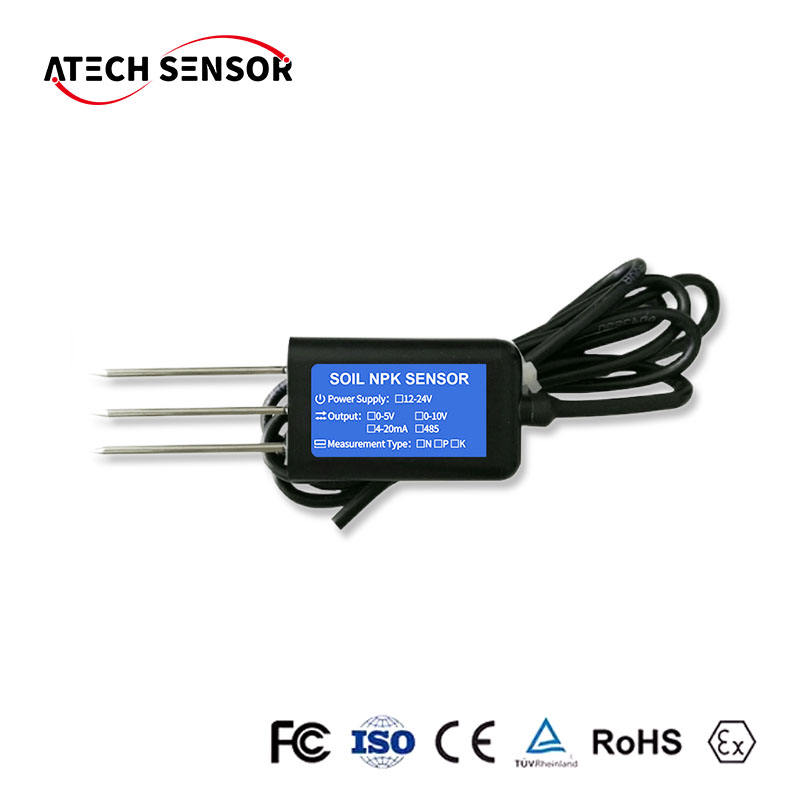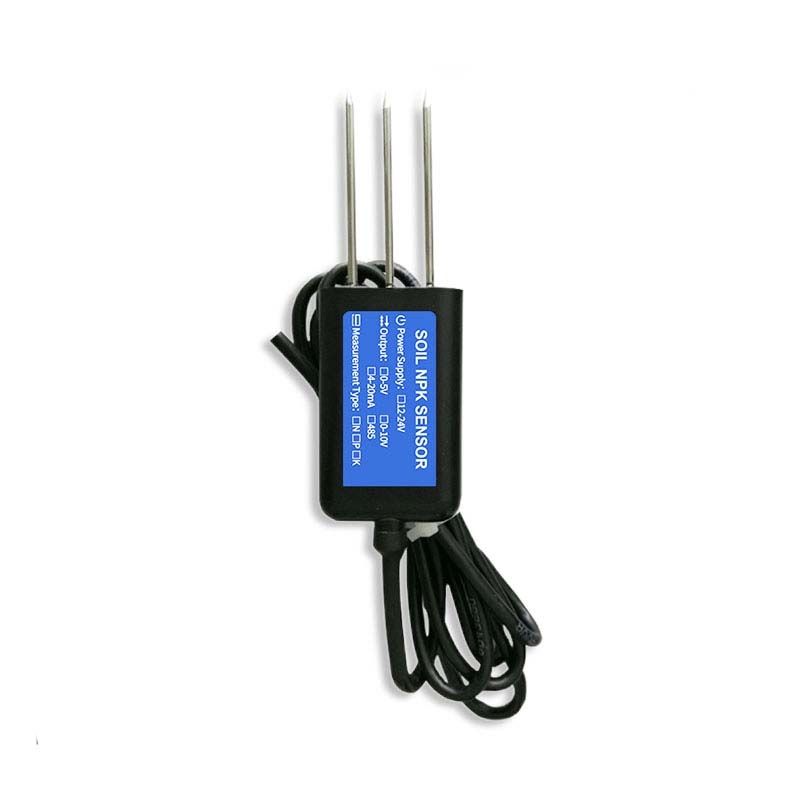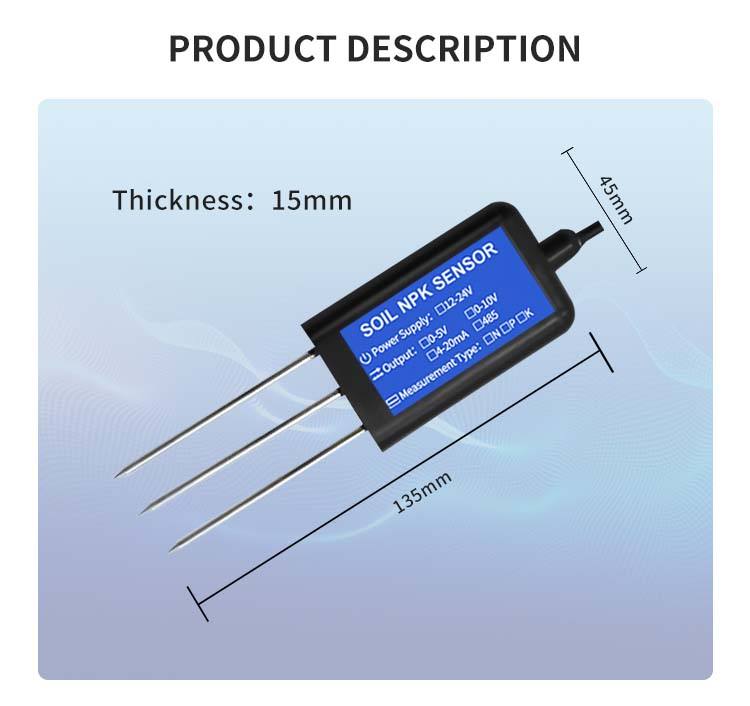
What is a soil NPK sensor?
Soil NPK sensors utilise a variety of technological principles to measure the levels of N, P, and K in the soil, thus providing real-time information on soil nutrition.
The working principle of soil NPK sensors
1. Spectral analysis: This technique detects the N, P, and K content of soil by measuring the degree of absorption or reflection of soil samples under specific wavelengths of light. Different nutrients have specific absorption or reflection characteristics in the visible, near-infrared or infrared spectral ranges, and their concentrations can be inferred by spectral analysis algorithms.
2. Electrochemical: This technique uses electrodes to measure the concentration of ions in the soil solution, including nitrogen, phosphorus and potassium ions. By inserting an electrode into the soil and measuring it using a specific electrochemical reaction, SOIL NPK sensors are able to accurately calculate nutrient concentrations.
3. Ion selective sensing: This technique uses specific materials or membranes to selectively adsorb or repel specific ions to measure nutrient concentrations in soil solution. By comparing to a reference solution, soil NPK sensors are able to generate a corresponding electrical signal or chemical reaction and output data related to the nutrient concentration.

Applications of soil NPK sensors
1. Fertiliser management: soil NPK sensors can help farmers understand the content of nutrients in the soil and apply fertiliser reasonably according to the measurement results. By monitoring the N, P and K content in the soil in real time, farmers are able to accurately adjust the fertiliser programme to avoid wasteful application of fertiliser and environmental pollution, thus improving crop growth and yield.
2. Soil health assessment: soil NPK sensors can be used to assess the health of the soil. By monitoring the levels of N, P and K in the soil, farmers can detect nutrient deficiencies or excesses in time to take appropriate measures to improve soil quality.
3. Farm management: soil NPK sensors can help farmers to implement refined farm management. Based on the nutrient data measured in real time, farmers can adjust farming activities such as irrigation, fertiliser application and pruning to improve the quality and yield of crops.
4. Optimisation of planting schemes: soil NPK sensors provide information on soil nutrients, which is very helpful in optimising planting schemes. Farmers can make appropriate planting plans according to the differences in the N, P and K requirements of different crops, so as to achieve efficient use of soil resources and improve crop productivity.
5. Environmental protection: soil NPK sensors can help reduce nutrient loss caused by over-fertilisation, thus reducing pollution of water bodies and the environment. By accurately measuring the N, P, and K content in the soil, farmers can apply fertilisers wisely, reduce environmental risks, and achieve sustainable agriculture.

Conclusion

